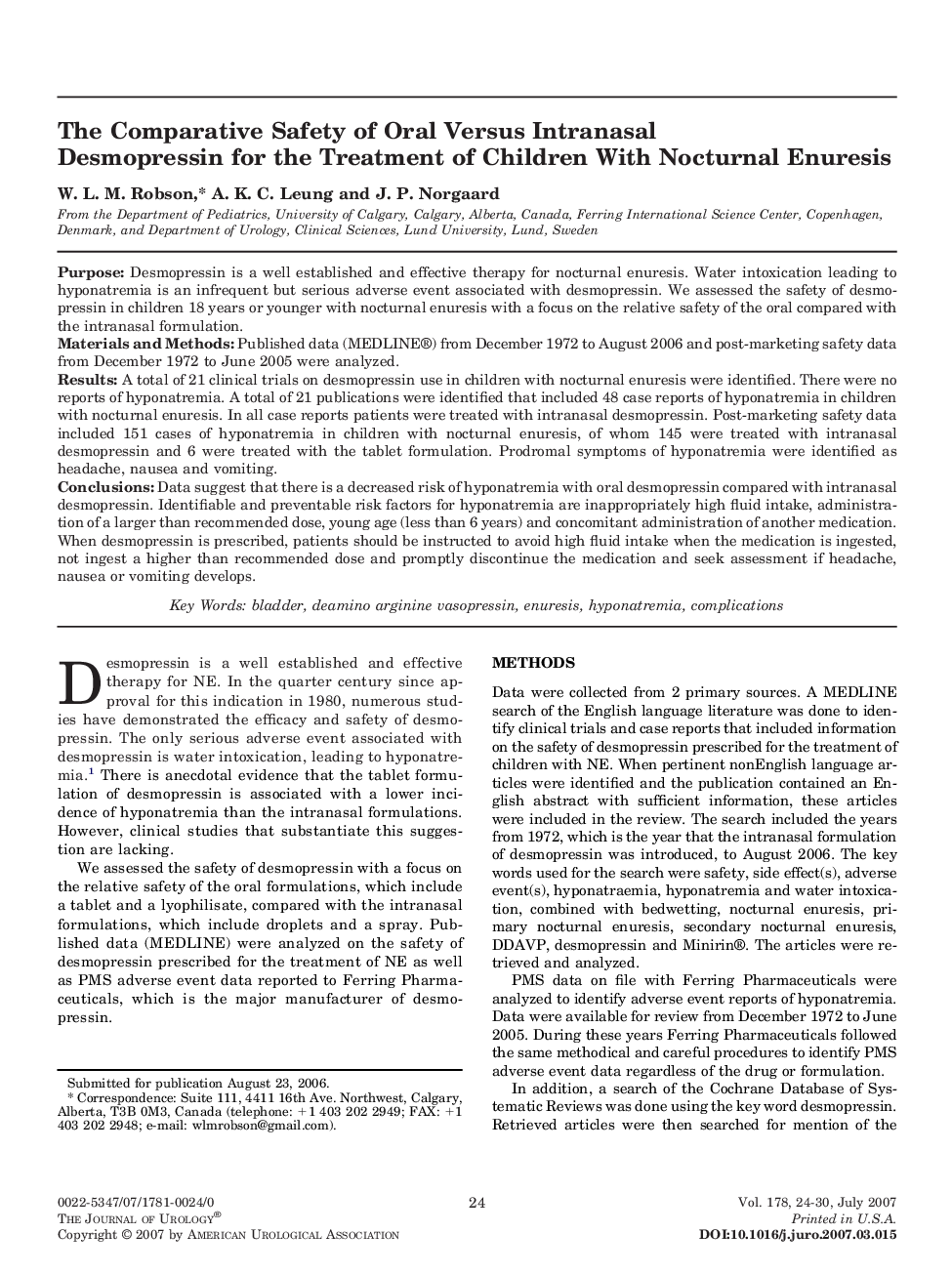| Article ID | Journal | Published Year | Pages | File Type |
|---|---|---|---|---|
| 3878466 | The Journal of Urology | 2007 | 7 Pages |
PurposeDesmopressin is a well established and effective therapy for nocturnal enuresis. Water intoxication leading to hyponatremia is an infrequent but serious adverse event associated with desmopressin. We assessed the safety of desmopressin in children 18 years or younger with nocturnal enuresis with a focus on the relative safety of the oral compared with the intranasal formulation.Materials and MethodsPublished data (MEDLINE®) from December 1972 to August 2006 and post-marketing safety data from December 1972 to June 2005 were analyzed.ResultsA total of 21 clinical trials on desmopressin use in children with nocturnal enuresis were identified. There were no reports of hyponatremia. A total of 21 publications were identified that included 48 case reports of hyponatremia in children with nocturnal enuresis. In all case reports patients were treated with intranasal desmopressin. Post-marketing safety data included 151 cases of hyponatremia in children with nocturnal enuresis, of whom 145 were treated with intranasal desmopressin and 6 were treated with the tablet formulation. Prodromal symptoms of hyponatremia were identified as headache, nausea and vomiting.ConclusionsData suggest that there is a decreased risk of hyponatremia with oral desmopressin compared with intranasal desmopressin. Identifiable and preventable risk factors for hyponatremia are inappropriately high fluid intake, administration of a larger than recommended dose, young age (less than 6 years) and concomitant administration of another medication. When desmopressin is prescribed, patients should be instructed to avoid high fluid intake when the medication is ingested, not ingest a higher than recommended dose and promptly discontinue the medication and seek assessment if headache, nausea or vomiting develops.
